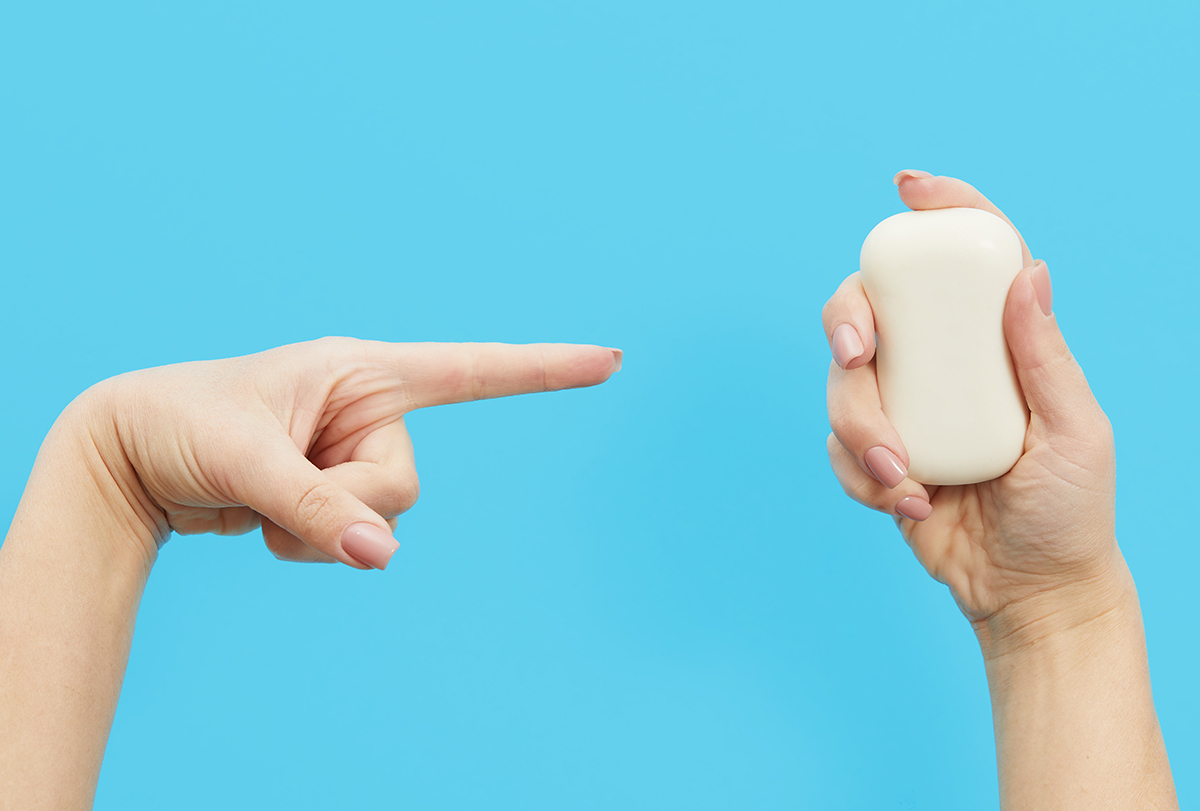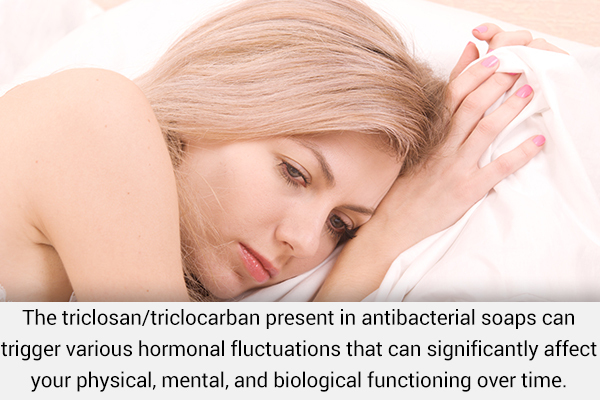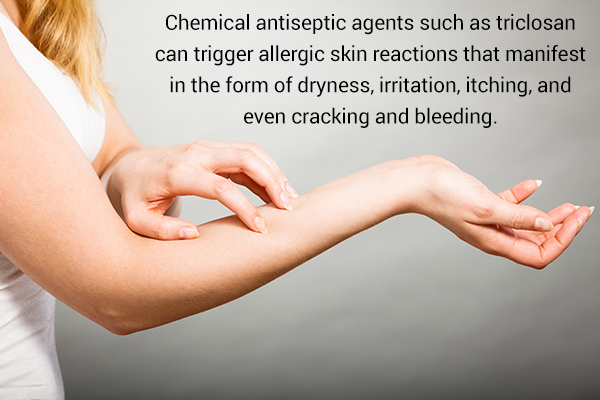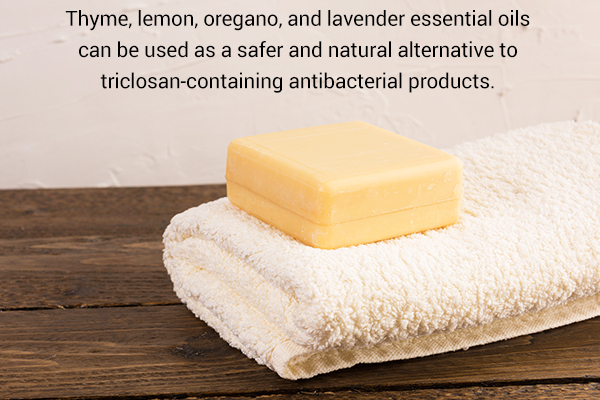In this article:
Antibacterial soaps are thought to be more effective than regular soaps in killing infection-causing germs on your skin. However, there isn’t enough scientific evidence to prove this claim, as has been pointed out by the FDA.

On the contrary, it has been found that the long-term use of antibacterial soaps may give rise to some adverse side effects. (1)
Reasons to Ditch Antibacterial Soap
Antibacterial soap leads to the following undesirable effects:
1. Disrupts the endocrine system

The triclosan/triclocarban present in antibacterial soaps is known to mimic a natural hormone and thereby disrupts the endocrine system. The body perceives it to be a real hormone and gets overstimulated.
Even low doses of this chemical can trigger various hormonal fluctuations that can significantly affect your physical, mental, and biological functioning over time. (2)(3)
2. Increases cancer risk
Recent studies suggest that triclosan can cause hormonal imbalances and inhibit the production of fatty acids, both of which can contribute to the development of cancer. More extensive research is needed to confirm this claim. (4)
3. Contributes to bacterial resistance
Triclosan does not work against all strains of bacteria. Some are naturally resistant to it, while some may become resistant over time after repeated exposure to low concentrations of the substance. (5)(6)
4. May cause skin allergies

Chemical antiseptic agents such as triclosan can trigger allergic skin reactions that manifest in the form of dryness, irritation, itching, and even cracking and bleeding. (7)
5. Makes you gain weight
Exposure to triclosan has been linked to the higher incidence of overweight and obesity among US population, but the underlying mechanism which leads to this is still unclear. (8)(9)
6. May be unsafe for pregnant women
According to one study, the hormonal fluctuations triggered by triclosan exposure may hamper proper fetal development and even cause spontaneous abortion or miscarriage. (10)
However, further research is required to properly assess the merits of this claim.
7. Harms the environment
The triclosan used in antibacterial soap and other personal care products is bad for the environment, which will inadvertently harm humans, animals, and aquatic life in the long run. (11)
What Is Antibacterial Soap and What Does It Contain?
A study published by Harvard University found that antibacterial soaps have almost the same composition as regular soaps, except for one chemical ingredient called triclosan or triclocarban.
Triclosan is known to curb the proliferation of bacteria to prevent infections. However, it does not work against viruses or other microbes.
Nowadays, most antibacterial soaps contain triclosan as their main active ingredient and are usually preferred over regular soaps for keeping your skin germ-free and reducing the risk of infection.
With the rise of COVID-19, more and more people are opting for antibacterial soaps in the hopes of avoiding sickness. However, research shows that soaps that contain triclosan deliver almost the same results as regular soaps when it comes to fighting or preventing infections. (12)
What Else Can Be Used Instead of Antibacterial Soap?

Considering all the potential side effects mentioned above, it is better to look for a safer alternative to antibacterial soap that can provide you with the extra sanitizing effect without compromising your overall health or damaging the environment.
Luckily, you don’t have to look further than essential oils to meet these requirements. These concentrated extracts are derived from medicinal plants that contain various bioactive compounds that give them therapeutic properties.
Different essential oils are known for different healing properties, and some of them are credited with strong antimicrobial effects.
One study found thyme, lemon, oregano, and lavender essential oils to be quite effective against some of the most common strains of infection-causing bacteria including Staphylococcus aureus, Enterococcus faecalis, E. coli, and Klebsiella pneumoniae. (13)
Thus, these essential oils can be used as a safer and natural alternative to triclosan-containing antibacterial products.
How to use:
- Mix a few drops of your preferred essential oil(s) into your liquid soap or body wash for extra antibacterial power.
- You can also buy soaps and personal hygiene products that contain essential oils.
Final Word
Latest research shows that regular soaps are just as effective as antibacterial soaps when it comes to killing pathogenic bacteria on the skin, (14) but the latter has more side effects. The harmful effects of antibacterial soap can be traced back to its main active ingredients, namely, triclosan and triclocarban.
The FDA even issued a rule to stop the marketing of any OTC antibacterial product that contains these chemicals since they are generally not recognized as safe and effective. You may opt for products containing natural antibacterial agents such as essential oils.
- Was this article helpful?
- YES, THANKS!NOT REALLY


